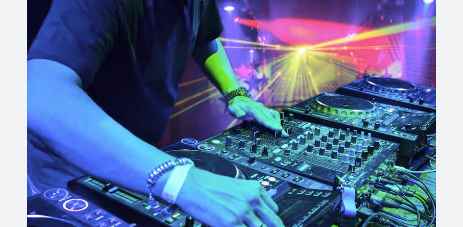Because every instrument is a piece of technology, technology has always been a part of music. The 19th century saw a tremendous advancement in music technology that led to the development of recorded music. The music studio also emerged during this time. When artists and producers started using the technology that was accessible to them in a creative way in the 1960s, studios and modern engineering started to have a significant impact on how music is formed. During this time, musicians started using engineering technologies in addition to purchasing musical instruments.
Although recordings up to the 1960s were created to be as accurate a portrayal of a live performance as possible, they were now frequently unable to be played in the conventional live sense, and started to resemble more and more sound experiments. The traditional recording studio has been replaced over time by home computers, enabling most contemporary electronic music to be created at home using only a laptop.
Naturally, this has resulted in both positive and harmful outcomes. On the plus side, it led to a democratization of music, giving anyone the opportunity to produce music. Of course, this has resulted in the publication of an enormous amount of formulaic and subpar music.
Additionally, the advancement of stereo sound greatly facilitated multi-tracking. Consequently, music became increasingly fragmented. In addition to the separation of people while the recordings were being made, there was also a separation in the music itself. It is possible to move one instrument to one side of the mix while moving another to the other. In addition to being individually recorded, they were also sort of heard separately at this point. The producer was given more control thanks to this stereo field utilization since 'the overall musical texture was progressively given to the sound engineer and producer' (Théberge 1989).
The studio had a significant role in the development of new musical genres throughout the 1970s. The auditory character of songs was directly influenced by new studio methods, giving rise to new genres. Producers like King Tubby remixed reggae songs in the studio and created dub music by heavily modifying the audio. King Tubby, who was actually a repairman named Osbourne Ruddock, was born. He stood out from the rest of his classmates because of his knowledge of electronics, according to the author. 'He became a master of audio mechanics, spending hours rewinding transformers and designing tube amplifiers that were bigger, louder, and cleaner than anything ever heard on the island,' the author writes (Stratton, 2005).
These studio editing technologies frequently result in the 'dehumanization' of music. Drum beats are metronomically on time and lack the swing that results from normal human flaws. Nearly too good, the recordings start to resemble mechanical rather than human productions. The interest in vintage studio equipment has recently increased as a result of this. Many contemporary musicians strive to create music 'outside the box' in an effort to make it sound more real and 'live.'
Because of how the studios affect the artists who utilize them, their influence on how music is not just recorded but also produced, is significant. Today's musicians are frequently musical collage artists, combining sounds from many sources. The evaluation they make often determines how good a song is. The capacity to use and comprehend technology in a creative and fascinating way has increasingly replaced the traditional requirements of musicianship and songwriting.




Leave Comment